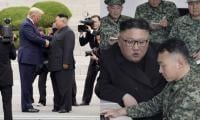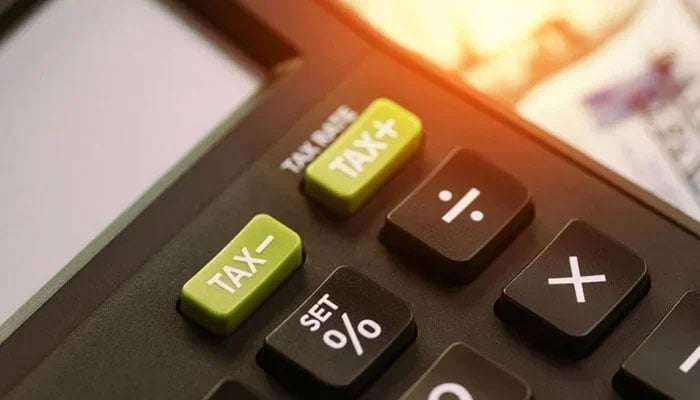Tax reform
LAHORE: Tax officials around the world have the authority to scrutinize business accounts and ensure that the documents are in line with the business being conducted by the concerned entity, a privilege our tax officials do not enjoy.
It is also normal practice to verify the authenticity of accounts by conducting audits of business accounts through credible professional accounting firms. Both these practices are disliked by businesses in Pakistan. The trade associations want raids to be conducted by taking them into confidence, but keeping associations in the loop means the element of surprise is gone, and the targeted business is informed in advance and given the chance to replace documents that are prepared for taxation purposes.
One fails to understand whether the mistrust between the tax collectors and the traders is genuine or fake. One wonders how fewer than 100,000 traders out of 2.3 million spread over Pakistan pay income tax. Why do over two million traders remain out of the tax net? Are the tax collectors friends of traders or their foes? Why does the overwhelming majority of traders remain outside the tax net? Do the tax collectors let them do this for free, or do they get a certain fee or rent for this favor?
Traders have parted with income tax worth Rs11 billion in the first eight months of this fiscal year. This is in contrast to the income tax worth Rs217 billion collected from salaried persons during the same period. In the case of the salaried class, a mechanism is in place under which income tax is deducted from the salaries by the employers and deposited with the income tax department. There is no escape for most of them. No such mechanism has been built for the traders. They operate without documents and deposit taxes (those who do) according to their wish, and what they file is not questionable.
This time around, under the new proposed tax regime, there would again be no documentation, but this time around, the FBR would decide the tax amount for each trader. This is not acceptable to the traders because under this mechanism, the tax collection would soar from a paltry amount to Rs500 billion per year.
This is also not acceptable to the revenue collectors because if all traders started paying tax, then they would not be paying any rent or bribe to the tax collectors. Both must be thinking of ways to avoid the new tax scheme.
This scheme is a diluted version. Actually, the tax collection from traders must exceed one trillion rupees given their share of 16 percent in our GDP. Manufacturing, which is around 18 percent of our GDP, deposits revenues of over six trillion rupees in the exchequer.
The raids are being conducted to register traders in the new taxation scheme, under which they would be required to deposit their tax in 12 monthly installments. Traders try to avoid registration.
They might start agitation to force the government to withdraw the scheme and give them the leverage to decide what tax they would be paying. The last date for obtaining registration is April 30, 2024.
-
 NASA Restructures Artemis Mission, Pushing First Lunar Landing To 2028
NASA Restructures Artemis Mission, Pushing First Lunar Landing To 2028 -
 Young Sebastian Bach: Wild Photos From His Long-haired Rock Star Era Amid Christina Applegate Confession
Young Sebastian Bach: Wild Photos From His Long-haired Rock Star Era Amid Christina Applegate Confession -
 Royal Family All Set To Show Unity As King Charles 'plans Abdication'
Royal Family All Set To Show Unity As King Charles 'plans Abdication' -
 Astronomers Spot Nearly Invisible Galaxy Packed With Dark Matter
Astronomers Spot Nearly Invisible Galaxy Packed With Dark Matter -
 Kim Jong Un Searches For Reason To Join Iran War In Viral Memes
Kim Jong Un Searches For Reason To Join Iran War In Viral Memes -
 Zach Braff Opens Up On Childhood Friendship With Singer Lauryn Hill
Zach Braff Opens Up On Childhood Friendship With Singer Lauryn Hill -
 Aryna Sabalenka Announces 'forever' With Partner Georgios
Aryna Sabalenka Announces 'forever' With Partner Georgios -
 Trump To Meet Tech Giants: White House Energy Pledge Aims To Shield Consumers Ahead Of Midterms
Trump To Meet Tech Giants: White House Energy Pledge Aims To Shield Consumers Ahead Of Midterms -
 Meghan Markle, Prince Harry Believe They Could Help King Charles, William As Royals Face Major Crisis
Meghan Markle, Prince Harry Believe They Could Help King Charles, William As Royals Face Major Crisis -
 Rob Rauscha Steps Away From Reality TV After 'The Traitors' Triumph: 'It's Not A Life I Want'
Rob Rauscha Steps Away From Reality TV After 'The Traitors' Triumph: 'It's Not A Life I Want' -
 Val Chmerkovskiy Shares Message With Fans After Hospitalization: 'Thank God, No Brain Tumour'
Val Chmerkovskiy Shares Message With Fans After Hospitalization: 'Thank God, No Brain Tumour' -
 China Achieves Breakthrough In High-speed Satellite-to-ground Laser Communication
China Achieves Breakthrough In High-speed Satellite-to-ground Laser Communication -
 AI Is Creating Jobs, Not Replacing Them—Here’s Why
AI Is Creating Jobs, Not Replacing Them—Here’s Why -
 Savannah Guthrie Receives Exciting Update In Mom Nancy Abduction Case
Savannah Guthrie Receives Exciting Update In Mom Nancy Abduction Case -
 Sharon Osbourne Gives Exciting Update On OzzFest
Sharon Osbourne Gives Exciting Update On OzzFest -
 Prince Harry Sends Strong Message To William Regarding Princess Eugenie, Beatrice
Prince Harry Sends Strong Message To William Regarding Princess Eugenie, Beatrice




